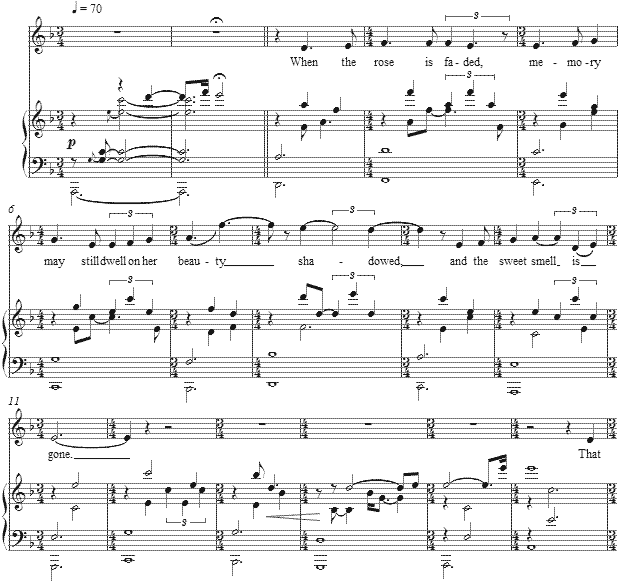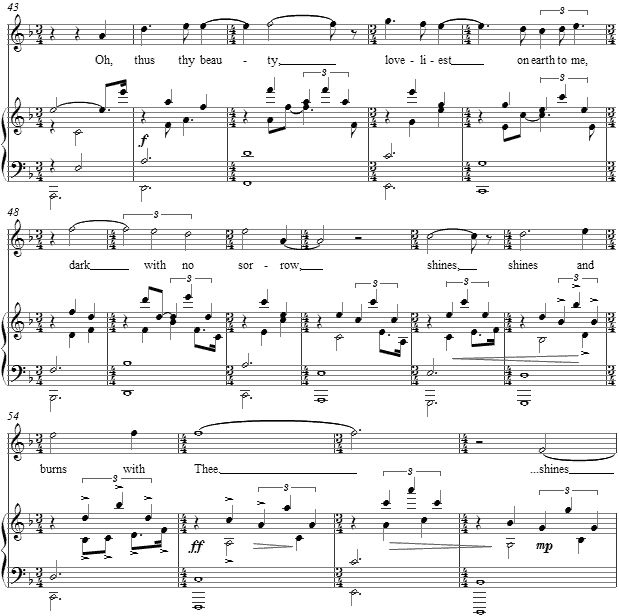Music and Texts of GARY BACHLUND
Vocal Music | Piano | Organ | Chamber Music | Orchestral | Articles and Commentary | Poems and Stories | Miscellany | FAQs
When the rose is faded - (2009)
Walter de la Mare
for high voice and piano
When the rose is faded,
Memory may still dwell on
Her beauty shadowed,
And the sweet smell gone.
That vanishing loveliness,
That burdening breath
No bond of life hath then
Nor grief of death.
'Tis the immortal thought
Whose passion still
Makes of the changing
The unchangeable.
Oh, thus thy beauty,
Loveliest on earth to me,
Dark with no sorrow, shines
And burns, with Thee.[ 3 pages, circa 3' 10" ]
Walter de la Mare
The rose as a symbol of love and devotion is a widely known cultural icon, which poets have used in many ways. It is the messenger of love, the token of love lost and in this poem a parallel and metaphor for the object of grief. A remarkable poem, its images begin darkly and with the motion into that "dark with no sorrow" rises to love again.
The more somber character of D minor begins in a dirge-like fashion, the scansion of the poem suggesting an alteration between 3/4 and 4/4 measures, spelled so for ease of reading as the phrase lengths then are the resulting seven beats each. The widely spaced accompaniment suggests a sparseness, while the vocal line rises emotionally at the words "beauty" and again "life" to affirm the brighter thoughts which result from beginning with a dark musing.
The highest of the vocal line comes as the accompaniment's dynamic becomes forte and more, with "beauty" and "loveliest" overcoming the seeming darkness to become "darkness with no sorrow." For this the minor tonic yields to its relative major tonic, and the meter becomes regular, breaking from the seven beat phrase. The setting ends quietly in a reserved and settled manner.
The score for When the rose is faded is available as a free PDF download, though any major commercial performance or recording of the work is prohibited without prior arrangement with the composer. Click on the graphic below for this piano-vocal score.


